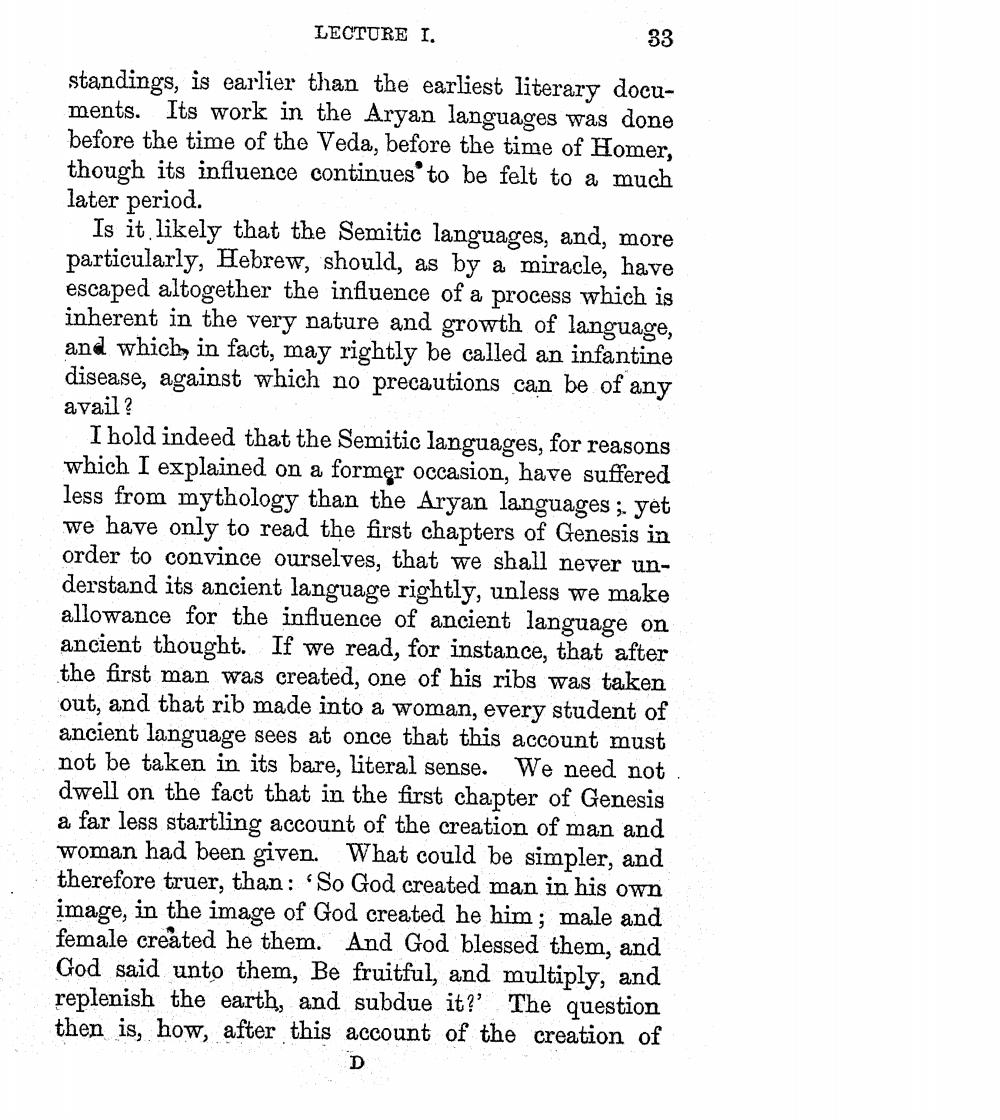________________
LECTURE I.
33
standings, is earlier than the earliest literary documents. Its work in the Aryan languages was done before the time of the Veda, before the time of Homer, though its influence continues to be felt to a much later period.
Is it likely that the Semitic languages, and, more particularly, Hebrew, should, as by a miracle, have escaped altogether the influence of a process which is inherent in the very nature and growth of language, and which, in fact, may rightly be called an infantine disease, against which no precautions can be of any avail ?
I hold indeed that the Semitic languages, for reasons which I explained on a former occasion, have suffered less from mythology than the Aryan languages; yet we have only to read the first chapters of Genesis in order to convince ourselves, that we shall never understand its ancient language rightly, unless we make allowance for the influence of ancient language on ancient thought. If we read, for instance, that after the first man was created, one of his ribs was taken out, and that rib made into a woman, every student of ancient language sees at once that this account must not be taken in its bare, literal sense. We need not dwell on the fact that in the first chapter of Genesis a far less startling account of the creation of man and woman had been given. What could be simpler, and therefore truer, than: 'So God created man in his own image, in the image of God created he him; male and female created he them. And God blessed them, and God said unto them, Be fruitful, and multiply, and replenish the earth, and subdue it?' The question then is, how, after this account of the creation of
D




